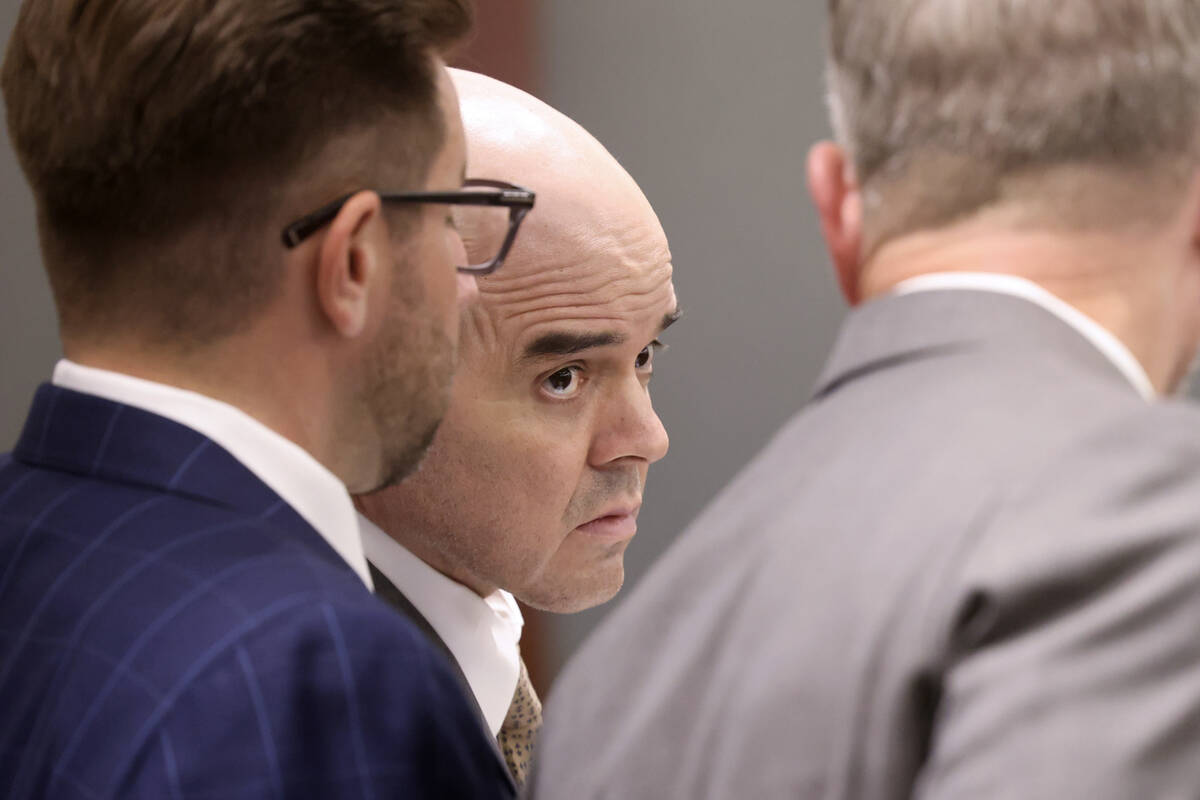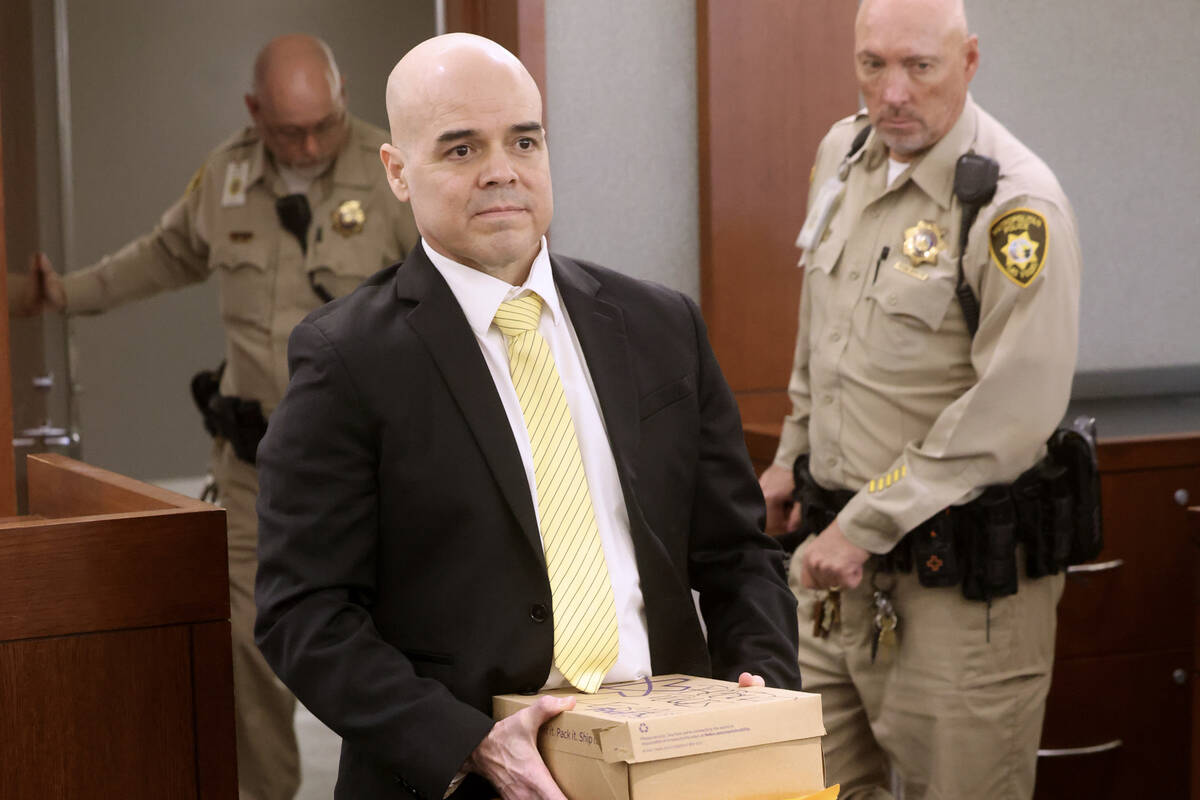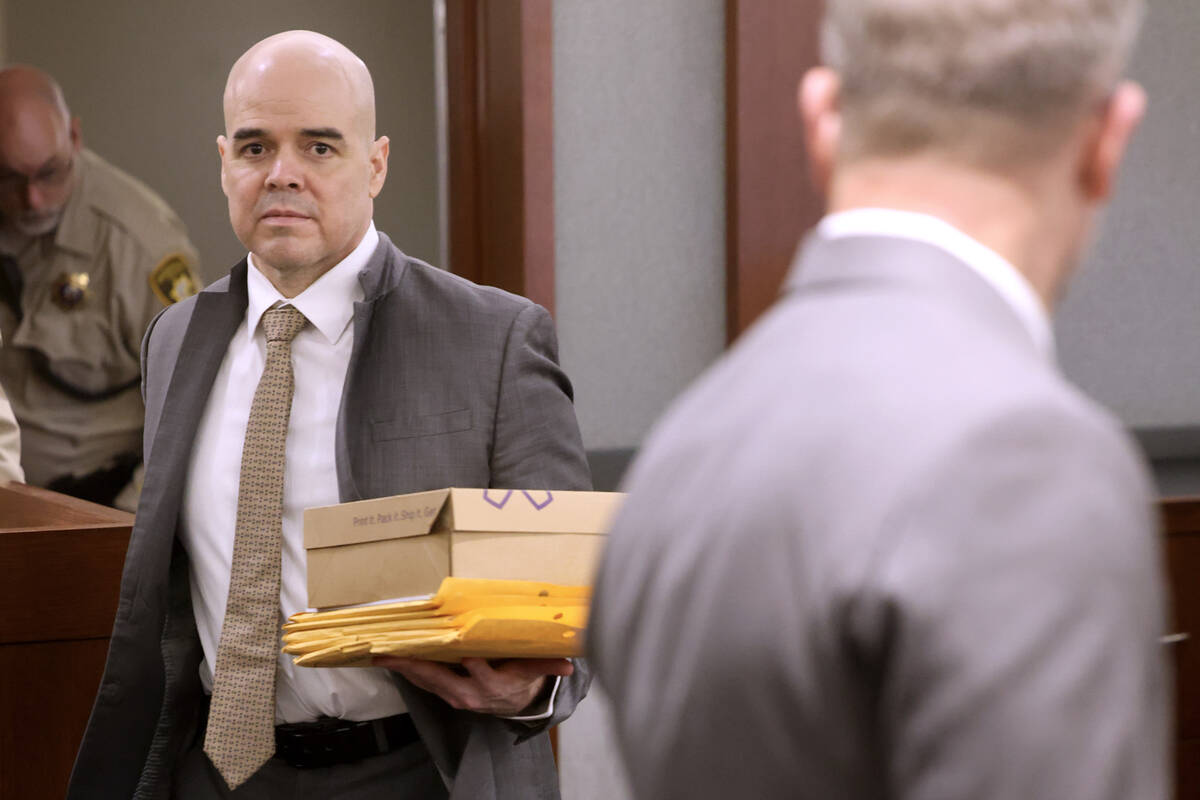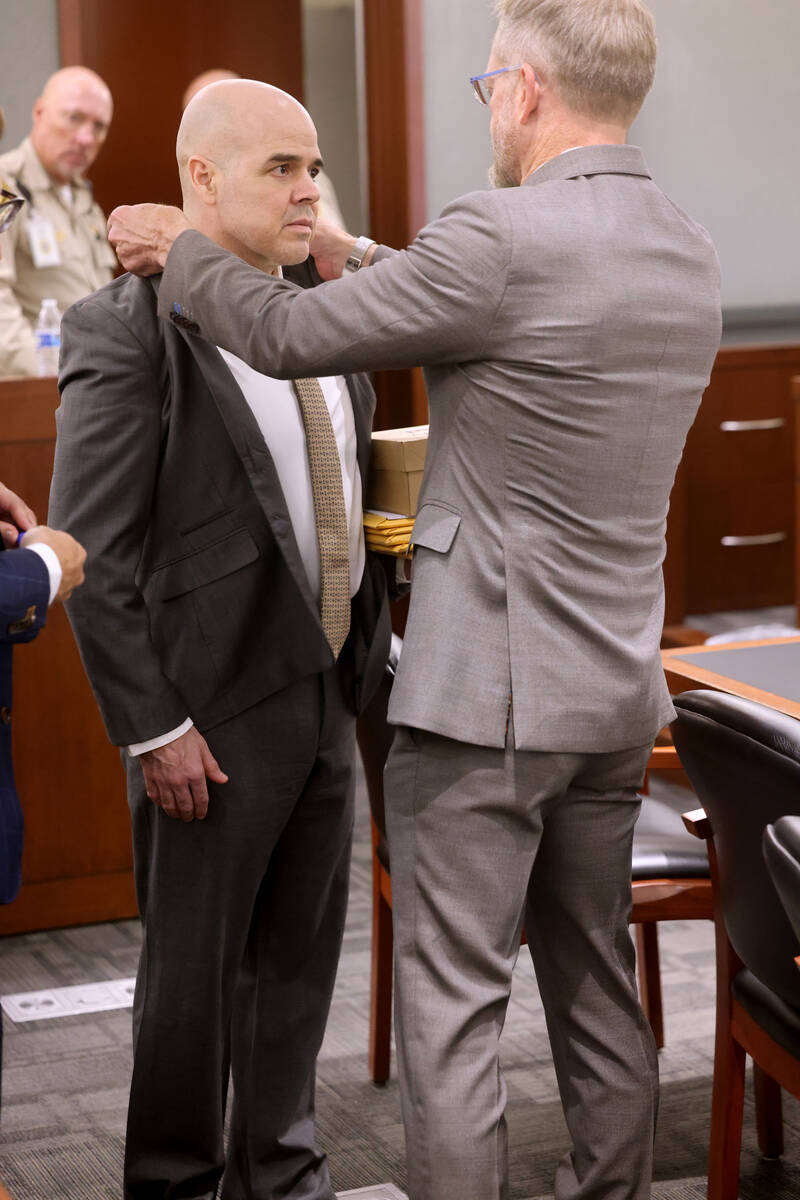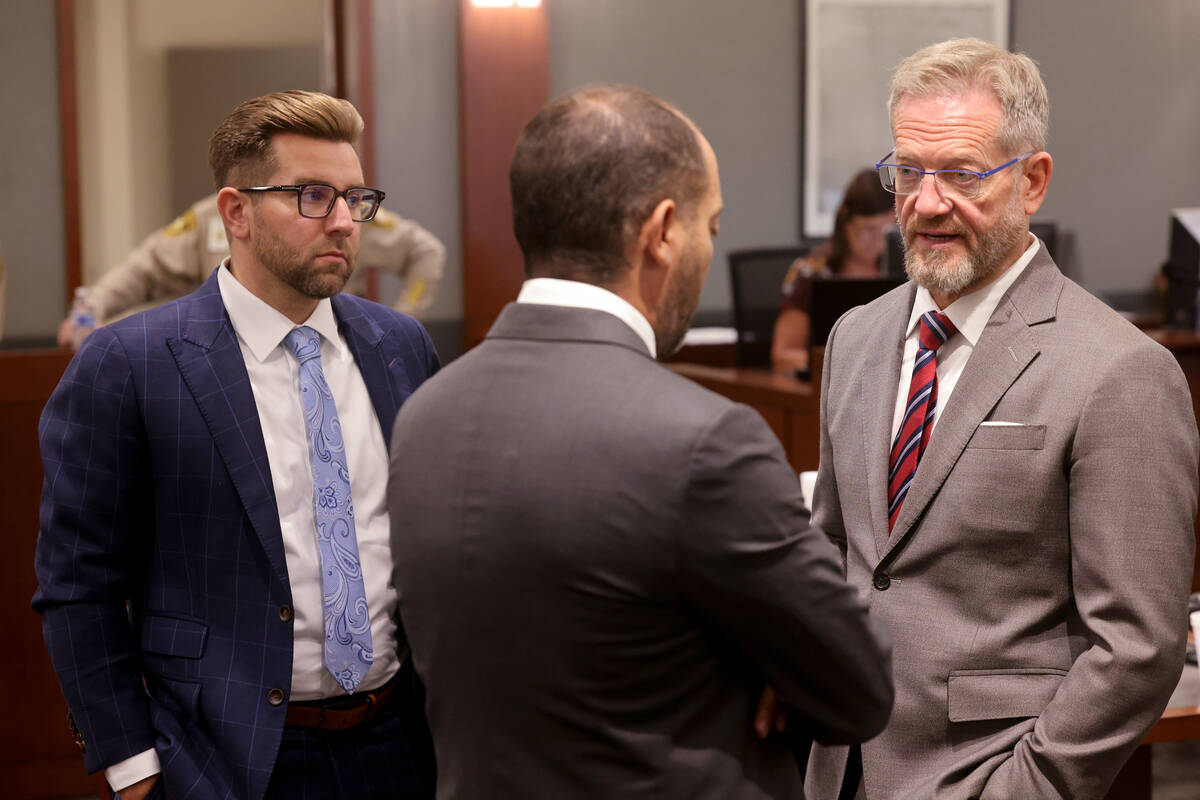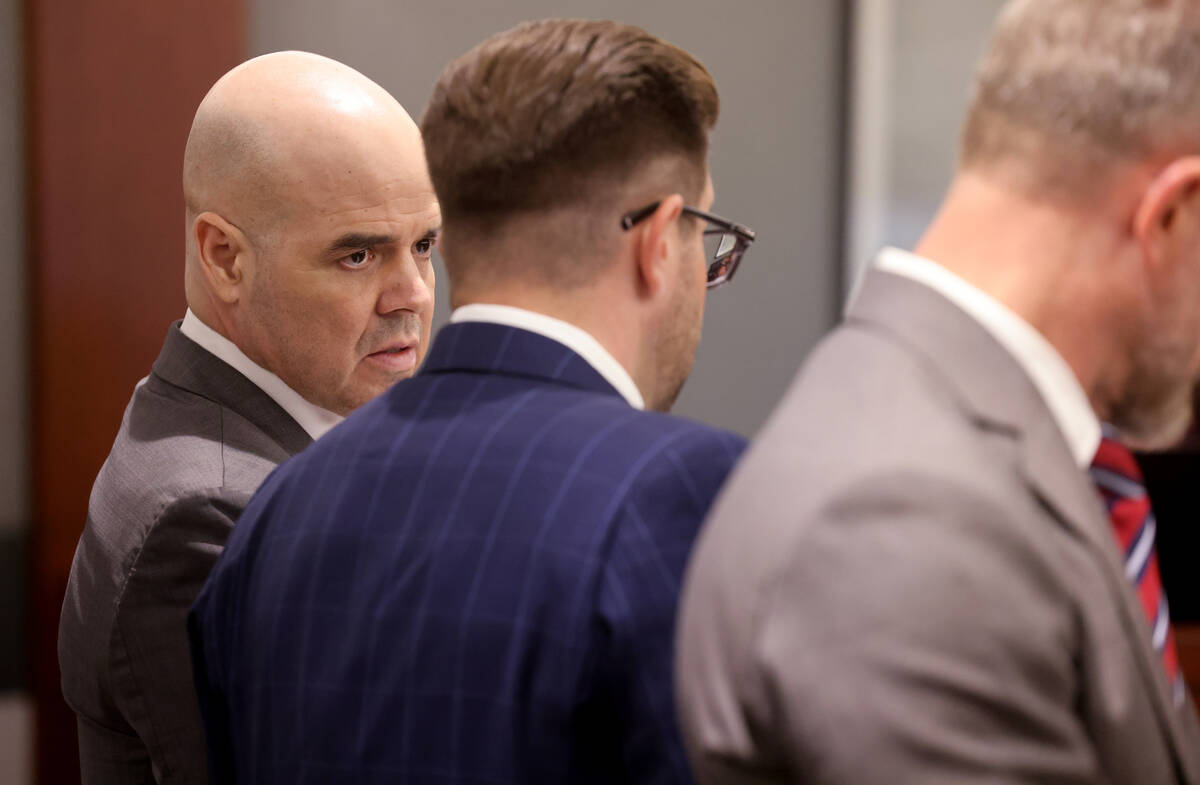Jury selected in Robert Telles trial, opening statements expected Wednesday
Attorneys have selected a jury for the murder trial of a former politician accused of killing Las Vegas Review-Journal investigative reporter Jeff German.
Tuesday marked the second day of trial for Robert Telles, 47, who has been charged with one count of murder with a deadly weapon against a victim 60 or older. Prosecutors have accused him of fatally stabbing German, 69, in September 2022 over articles the journalist had written about his conduct as the former Clark County public administrator.
The panel of 12 jurors and two alternates was finalized Tuesday evening, after attorneys began questioning potential jurors on Monday afternoon. The jury is comprised of seven women and seven men.
District Judge Michelle Leavitt scheduled the trial to resume at 10:30 a.m. Wednesday, when attorneys are expected to give opening statements.
The panel started with less than 40 potential jurors on Tuesday morning, but more than two dozen additional jurors were called to participate by Tuesday afternoon. Some jurors were dismissed throughout the jury selection process due to conflicts with their jobs, childcare, medical issues or language barriers.
Telles, who has remained in custody since his arrest, has been attending court out of handcuffs. He wore a grey suit and brown tie on Tuesday, and his attorney, Robert Draskovich, was seen fixing his jacket collar before the potential jurors were escorted into the room.
He was seen whispering with Draskovich and his other defense attorney, Michael Horvath, as both the defense and prosecution prepared peremptory challenges on Tuesday evening. The challenges were submitted to the judge in writing, and are used to dismiss potential jurors for nearly any reason.
Both sides had nine peremptory challenges each, but both the defense and prosecution only used eight of the challenges, Draskovich said.
“We’re happy we got our jury,” Draskovich said Tuesday evening. “We’re comfortable with the people chosen.”
The judge asked potential jurors basic questions, such as their familiarity with the defendant and attorneys, and if they had any conflicts that would prevent them from serving on a jury for at least two weeks. Chief Deputy District Attorney Christopher Hamner then questioned jurors, followed by a series of questions from Draskovich.
Hamner asked about the potential jurors’ views on the criminal justice system and police officers, such as their ability to not be biased against law enforcement. He also asked jurors about their opinions on information shared on social media about the criminal justice system.
Several potential jurors said they had read about the case or watched news reports on Telles, and attorneys questioned if that would prevent them from being impartial. Attorneys did not specifically ask about potential jurors’ opinions on local media, including the Review-Journal, although a questionnaire sent to potential jurors solicited opinions on the newspaper.
When Draskovich asked questions, he quizzed several potential jurors about their ability to believe a police officer is capable of lying. He also asked what people thought about a defendant testifying during trial. Draskovich has previously told reporters that he expects Telles to take the stand.
When specific people were questioned, they were asked if they could make a commitment to being impartial, and if they understood that prosecutors have the burden of proving the charges against Telles.
Telles has maintained he was framed for the killing, and has long argued that evidence in the case was tainted due to police misconduct. He even submitted a complaint against the Metropolitan Police Department to the county’s Citizen Review Board, which was later dismissed.
Meanwhile, prosecutors have pointed to “overwhelming” evidence against Telles, including his DNA found underneath German’s fingernails. Prosecutors are expected to point to Telles’ anger over German’s reporting as a motive. Months before he was killed, German wrote about allegations that Telles created a toxic work environment inside the county office while carrying on an “inappropriate” relationship with a staffer.
The trial began Monday, after Telles waived any further search of German’s personal devices, which were seized by police after he was killed. A lengthy legal fight between the Review-Journal and officials seeking to search the devices had delayed the trial, until the Nevada Supreme Court in October ruled that the state’s shield law protected German’s devices even after his death.
The Review-Journal turned over information on the devices to prosecutors and Telles’ defense on Monday. The judge questioned Telles in court on Monday, when he confirmed he wanted the trial to continue.
Contact Katelyn Newberg at knewberg@reviewjournal.com or 702-383-0240.



